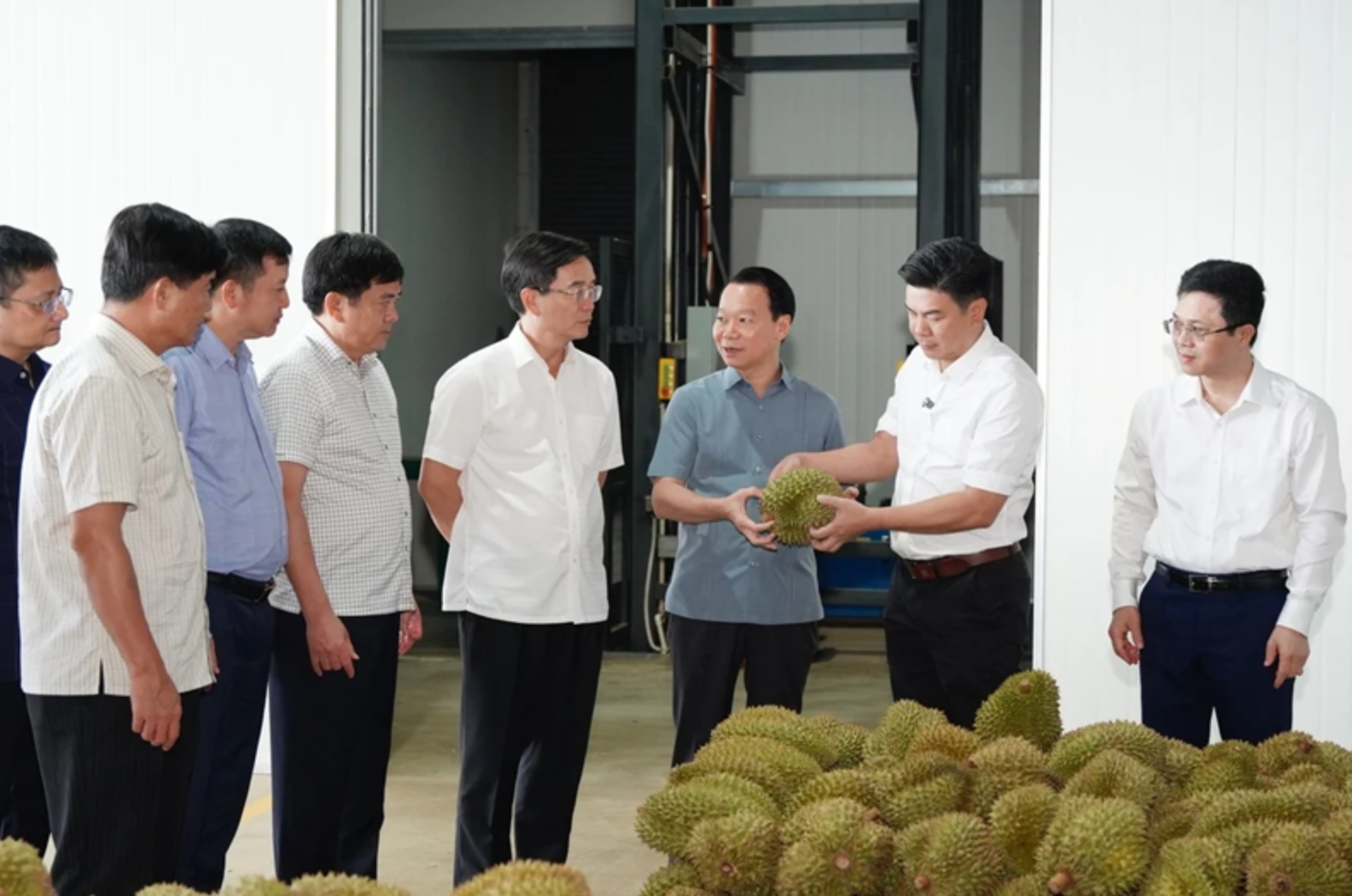On the morning of May 25, during a working visit to Dak Lak Province, Minister of Agriculture and Environment Do Duc Duy held a working session with Tay Nguyen Durian Joint Stock Company (Sarita), one of Vietnam’s pioneering enterprises in durian export.
During the visit, the Minister toured Sarita’s facility to observe the whole process of durian procurement, selection, preliminary processing, and freezing. He praised the company’s model of regional linkage, which includes providing technical and financial support to farmers and its role in creating jobs for ethnic minority communities in the area. The Minister emphasized that this model exemplifies sustainable agricultural development, delivering economic and social benefits.
In discussions with the Minister, Mr. Vu Phi Ho, Chairman of Sarita’s Board of Directors, shared that in its first year of exporting, the company shipped approximately 6,000 tons of fresh and frozen durian to key markets such as China and Australia, and has begun exploring the European market under the brand “Sarita – 100% Vietnamese Durian.” The company sources its produce from 1,600 farming households in Dak Lak.
 Minister Do Duc Duy highly appreciated Sarita's efforts to build a chain of durian growing areas. Photo: Pham Hoai.
Minister Do Duc Duy highly appreciated Sarita's efforts to build a chain of durian growing areas. Photo: Pham Hoai.However, Mr. Ho also candidly addressed several challenges facing the company. One major issue is the high cost of product testing — about 400,000 VND per sample — which places significant financial pressure on large-scale exporters handling hundreds of containers annually. Additionally, the operation of unauthorized but publicly active packaging facilities continues to undermine transparency and damage the international credibility of Vietnam’s durian industry.
Another pressing issue is the quality control of durian-growing areas. Although the cultivation area is expanding rapidly, many farmers still rely on informal, experience-based methods, lacking standardized agricultural practices. This hampers effective monitoring of pesticide residue levels and makes it difficult to maintain consistent product quality.
Mr. Ho recommended that authorities update and widely disseminate standardized cultivation guidelines, particularly in key growing regions like Dak Lak. He also called for stricter oversight of packaging facilities to prevent the blending of low- and high-quality products, thereby safeguarding the reputation of Vietnamese durians on the global stage.
He further emphasized the ethical responsibility of enterprises in the domestic market, asserting that products rejected by export markets should not be redirected to local consumers, as doing so would be a sign of disregard for Vietnamese customers.
Minister Do Duc Duy welcomed the company’s feedback, acknowledging the proposals and affirming that he would direct relevant agencies to work closely with enterprises to address these challenges. He hoped Sarita would continue to lead in building the Vietnamese durian brand internationally, helping elevate the country’s agricultural products through quality and trust.